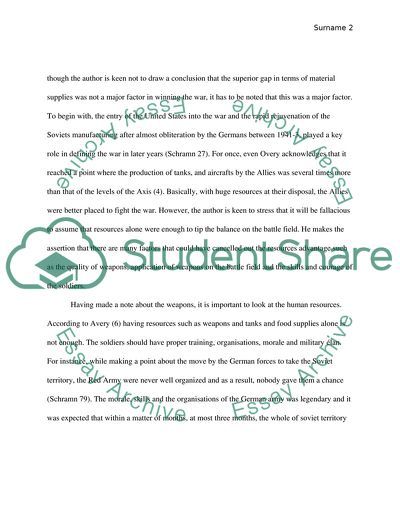Cite this document
(Why the Allies Won Book Report/Review Example | Topics and Well Written Essays - 1750 words - 2, n.d.)
Why the Allies Won Book Report/Review Example | Topics and Well Written Essays - 1750 words - 2. Retrieved from https://studentshare.org/literature/1875409-book-review
Why the Allies Won Book Report/Review Example | Topics and Well Written Essays - 1750 words - 2. Retrieved from https://studentshare.org/literature/1875409-book-review
(Why the Allies Won Book Report/Review Example | Topics and Well Written Essays - 1750 Words - 2)
Why the Allies Won Book Report/Review Example | Topics and Well Written Essays - 1750 Words - 2. https://studentshare.org/literature/1875409-book-review.
Why the Allies Won Book Report/Review Example | Topics and Well Written Essays - 1750 Words - 2. https://studentshare.org/literature/1875409-book-review.
“Why the Allies Won Book Report/Review Example | Topics and Well Written Essays - 1750 Words - 2”, n.d. https://studentshare.org/literature/1875409-book-review.


